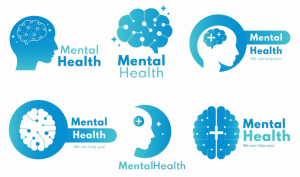Introduction
Family therapy, also known as family counseling, is a specialized form of psychotherapy that focuses on improving communication and resolving conflicts within a family unit. It aims to strengthen relationships, promote understanding, and foster a healthier family dynamic. This article delves into the world of family therapy, exploring its benefits, who can benefit from it, and how it can positively impact families facing various challenges.
Understanding Family Therapy
Family therapy operates on the principle that families are interconnected systems, and the issues faced by one member can affect the entire family’s well-being. The therapy sessions typically involve multiple family members attending together, working with a trained therapist to address their collective concerns.
The Role of a Family Therapist
A family therapist is a licensed mental health professional with expertise in dealing with family dynamics and relationship issues. They facilitate open communication among family members, create a safe space for dialogue, and guide the family towards healthier ways of relating to one another.
When to Consider Family Therapy
H1: Marital Conflicts and Communication Issues
Communication breakdowns and unresolved conflicts between spouses can have a detrimental impact on the entire family. Family therapy can help couples improve their communication and find ways to resolve their differences constructively.
H2: Parent-Child Relationship Problems
Parent-child relationships can become strained, leading to rebellious behavior, academic struggles, or emotional distress. Family therapy offers a platform to address these issues and rebuild trust and understanding.
H2: Blended Family Challenges
Blending two families can be complex, as each member brings unique experiences and expectations. Family therapy can help navigate through the challenges and foster a harmonious blended family environment.
H1: Substance Abuse and Addiction
Families dealing with substance abuse and addiction issues can benefit from family therapy to strengthen their support system and develop strategies for coping with the challenges of addiction together.
H3: Mental Health Issues
Families with a member suffering from mental health problems can find support and understanding through family therapy. It helps them learn how to cope with the situation and provide the necessary support to the affected individual.
H4: Grief and Loss
Facing the loss of a family member can be overwhelming. Family therapy can help family members come to terms with their grief, support each other, and find ways to honor the memory of the departed.
The Family Therapy Process
Family therapy sessions typically follow a structured approach:
- Assessment: The therapist gathers information about the family’s history, dynamics, and current challenges to understand the underlying issues better.
- Goal Setting: Together with the family, the therapist sets achievable goals for the therapy sessions, which will guide the therapeutic process.
- Intervention: The therapist employs various techniques and exercises to address conflicts, improve communication, and promote understanding among family members.
- Evaluation: The progress is continuously evaluated, and the therapy plan is adjusted accordingly to meet the family’s evolving needs.
Benefits of Family Therapy
Family therapy offers numerous benefits for families, including:
- Improved communication and problem-solving skills
- Enhanced empathy and understanding among family members
- Strengthened relationships and bonds
- Reduced conflict and tension within the family
- Improved coping mechanisms during challenging times
Frequently Asked Questions (FAQs)
Q1: Is family therapy suitable for every family?
Family therapy can benefit most families facing challenges or seeking to improve their relationships. However, each family’s needs and circumstances are unique, so it’s essential to consult with a qualified family therapist to determine if it’s the right fit.
Q2: How long does family therapy take to show results?
The duration of family therapy varies depending on the complexity of the issues and the family’s commitment to the therapeutic process. Some families may see positive changes in a few sessions, while others may require several months.
Q3: Can family therapy address individual issues too?
Yes, family therapy can address individual issues as they often intertwine with family dynamics. The therapist can help individuals within the family understand their roles and contributions to the family system.
Q4: What if a family member is resistant to attending therapy?
Resistance from one or more family members is not uncommon. A skilled family therapist can help create a safe and supportive environment, encouraging hesitant members to participate actively.
Q5: Can family therapy prevent future conflicts?
Family therapy equips families with better communication and problem-solving skills, reducing the likelihood of conflicts. While it cannot guarantee a conflict-free future, it can significantly improve family dynamics.
Conclusion
Family therapy is a powerful tool for enhancing family relationships, resolving conflicts, and promoting overall emotional well-being. Whether a family is facing communication challenges, struggling with addiction, or coping with grief, family therapy can provide a supportive and constructive environment for positive change. If your family is experiencing difficulties, consider exploring the potential benefits of family therapy in bringing about positive transformation.


